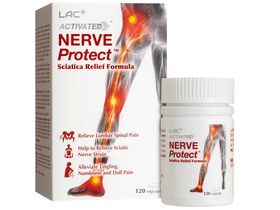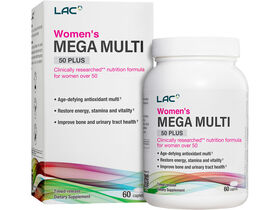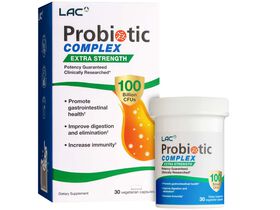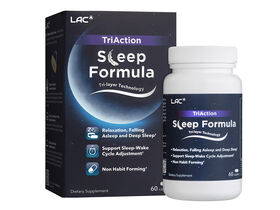The Most Advanced Defense Infrastructure

Fall sick easily? Feeling fatigued all the time? Here are some tips on how you can power up your immune defense!
Our Immune system plays an immeasurably important role when it comes to ensuring our survival and overall well-being.
Without our immune system, we would be like a country without its armed forces, making us easy prey when it comes to “enemy” attacks.
Our immune system is an advanced, sophisticated and intricate defense infrastructure designed to protect us from harmful pathogens (germs, bacteria, fungi, parasites, toxins and viruses).
From our skin which functions as the main barrier preventing any foreign substances and pathogens from entering our system,
to the enzymes in our tears, mucus and saliva that is designed to break the cell wall of many bacteria, right down to the white blood cells that are programmed to find, kill and ingest pathogens – our immune system when in tip-top condition is like a finely tuned machinery with a myriad of moving parts, each playing a critical role in defending our health.
Before we proceed to delve a little further into the parts and components of our immune system and what it needs to stay fully powered, let’s take a look at the tell-tale signs of how well our immune system might be functioning:
Your immune system is likely functioning well if:
✔ You find that you are usually resilient to common coughs and flu bugs
✔ You incorporate fitness as part of your regular routine
✔ You are able to keep your stress manageable at healthy levels
Your immune might be a little “under the weather” if:
✔ You fall ill easily and are usually the first to catch any seasonal cough and flu bugs
✔ You experience tummy troubles on a fairly regular basis
✔ Your stress is at a sky high level and you find yourself struggling to cope
Now that we’ve identified the tell-tale signs of how your immune might be feeling,
let’s take a closer look at our immune system.
Our immune system is made of up a complex collection of cells and organs that work together to protect us from pathogens and aid recovery when we fall sick.
Let’s go ahead and take a closer look at some of the key defenders operating in our immune infrastructure.
- White blood cells: Think of white blood cells as our army.
White blood cells are programmed to search out, attack and destroy any harmful bacteria and viruses that find their way into our body. Like the different army divisions, we actually have multiple types of white blood cells that perform specific missions in our body’s defense system.
Each has a way of recognizing a problem, communicating with other cells on the defense team and performing their function. The cells either circulate in the bloodstream and lymphatic system throughout the body or reside in a particular tissue, waiting to be called into action. 1
- Lymphatic system: A network of delicate tubes that carry white blood cells throughout the body.
In this way, our lymphatic system is like the transportation network that allows the body to call up its “defense units”
to combat where it is needed. Our lymphatic system is made up of hundreds of lymph nodes throughout the body. Swollen or tender lymph nodes, is an indication that our body is fighting an infection.
- Spleen: Stores white blood cells, and filters blood, destroying old and damaged red blood cells.
- Bone Marrow: The spongy tissue found inside your bones. Produces red blood cells, white blood cells and platelets to fight infection and help with blood clotting.
- Thymus: Produces white blood cells called T-lymphocytes that specifically help recognise and remember an invader.
- Skin: The first line of defense in preventing and destroying germs before they enter your body. The skin has acid mantle on its surface acting as a barrier to bacteria, and other potential contaminants.
- Lungs: Mucous in the respiratory tract traps foreign particles which are then moved out by hair like structures, called cilia, and coughed out as phlegm.
- Digestive Tract:
Acid in the stomach and good bacteria in your intestines can fight against most bad bacteria and viruses that enter your body.
Now that we know just how amazing our immune system is, and everything it does “behind-the-scenes” to keep us protected; let’s look at what our immune system needs to stay well fueled and powered for our optimum defense protection!
Just like the rest of our body, our immune system needs nourishment, sufficient rest and a healthy environment to function optimally. Keep your immune system hale and hearty with these tips:
Focus on your nutrition
Vitamin C tops the list when it comes to supporting our immune health. Vitamin C promote production of white blood cells and helps immune cells to function effectively while protecting them from free radical damage. Thus helps to shorten duration of cold and flu.2
Daily intake of Vitamin C is essential as our bodies do not produce or store it.
An excellent source of antioxidant comes from Vitamin C, which is abundant in foods such as citrus fruits, kiwi and capsicum.3
Studies also show that
Vitamin D plays an important role in regulating our immune system and ensuring a healthy respiratory system. Vitamin D is produced by the body when the skin is being being exposed to sunlight and can be found in foods such as fatty fish, cheese, egg yolks and fortified dairy products.
Do you know, despite Singapore’s sunny weather - more than 40% of Singaporeans are actually deficient in Vitamin D?4
Along with immune support,
Zinc supports the body’s natural resistance and helps in wound healing and combating of infections.
As Zinc is an essential nutrient, it is important to get enough supply through our diet.
Foods high in Zinc include red meat, poultry and seafood. Some plant-based foods, such as beans, nuts, whole grains and dairy, have some zinc, too.
Given our hectic lifestyles and frequent dine-out meal culture, ensuring our immune system receives the adequate nutrition it needs to function optimally might be a challenge.
To circumvent this, consider
immune support supplements which are formulated to provide optimal immune support for you and your family.
To read up more on other key vitamins and minerals that can help rev up your immune health, click here .
Protect your gut
Our gut plays an important role in ensuring a healthy immune system. The immune system consists of a complex network of organs, cells and protein. Do you know - Our gut contains 70 to 80 percent of cells that make up the immune system?5
These cells kill invading organisms, harmful bacteria and viruses. If our digestive system is compromised, it might make us more susceptible to viruses or result in gut problems such as irritable bowel syndrome.
Maintain a strong digestive and immune system by regularly taking
probiotic supplements to ensure that a healthy balance of ‘good bacteria’ in our gut, which is crucial towards curtailing the growth of harmful bacteria.
Manage symptoms associated with stress
Stress is part and parcel of life. However, chronic stress over a period of time can be detrimental to your immune health and make you more vulnerable to illnesses.
When you experience stress, the body releases cortisol, a stress hormone that “fuels your body’s fight or flight instinct”. Cortisol affects our immune system by suppressing it, meaning extended episodes of stress can leave your immune system weakened.
Taking a Vitamin B
supplement can help your body get through stressful periods better. Vitamin B helps maintain a healthy nervous system and good level of energy to effectively fight symptoms of stress.6
Exercise
Regular exercise is one of the pillars of healthy living. It not only improves your overall health but can also help boost your immune system and protect against diseases.
Studies have shown that moderate intensity exercises may cut down the number of colds you get. Such activities include brisk walking for 20 to 30 minutes every day or going to the gym every other day. 7
Researchers have also found that walking regularly may increase the bodies’ white blood cells, which are key players in our immune system.8
Sleep well
When it comes to immune health, sleep plays an important role. While more sleep does not necessarily prevent one from falling sick; not getting sufficient and quality sleep a day could adversely compromise our immune, leaving us susceptible to “seasonal bugs”. Some studies have shown that taking two naps no longer than 30 minutes each day can also help to reduce stress and offset the negative effects that sleep deprivation has on the immune system.9
Unable to get restful sleep?
Sleep supplements can help soothe and calm the body to help improve sleep quality.
Our immune does a whole lot for us, and ensuring that our immune system is healthy and functioning well is crucial to maintaining our good health. We hope that this article has shed some useful insights as to the going-on in our immune system and how to keep our immune in tip-top shape!
Reference
1 https://my.clevelandclinic.org/health/articles/21196-immune-system
2 https://www.healthline.com/nutrition/vitamin-c-benefits#6 , https://lpi.oregonstate.edu/mic/health-disease/immunity
3 https://www.verywellhealth.com/types-of-foods-to-boost-your-immune-system-89020
4 Statistics source: Imagene Labs Bioinformatics. Based on study of ~1500 individuals.
5 https://www.healthline.com/health/digestive-health/things-your-gut-wants-you-to-know
6 https://www.healthline.com/nutrition/vitamin-b-complex#benefits
7 https://www.webmd.com/cold-and-flu/cold-guide/exercise-when-you-have-cold#1
8 https://medlineplus.gov/ency/article/007165.htm
9 https://www.sleepfoundation.org/articles/how-sleep-affects-your-immunity








-240s-label-Front_1638x1227.jpg?sw=280&sh=210&sm=fit)


_front_For Web.jpg?sw=280&sh=210&sm=fit)

